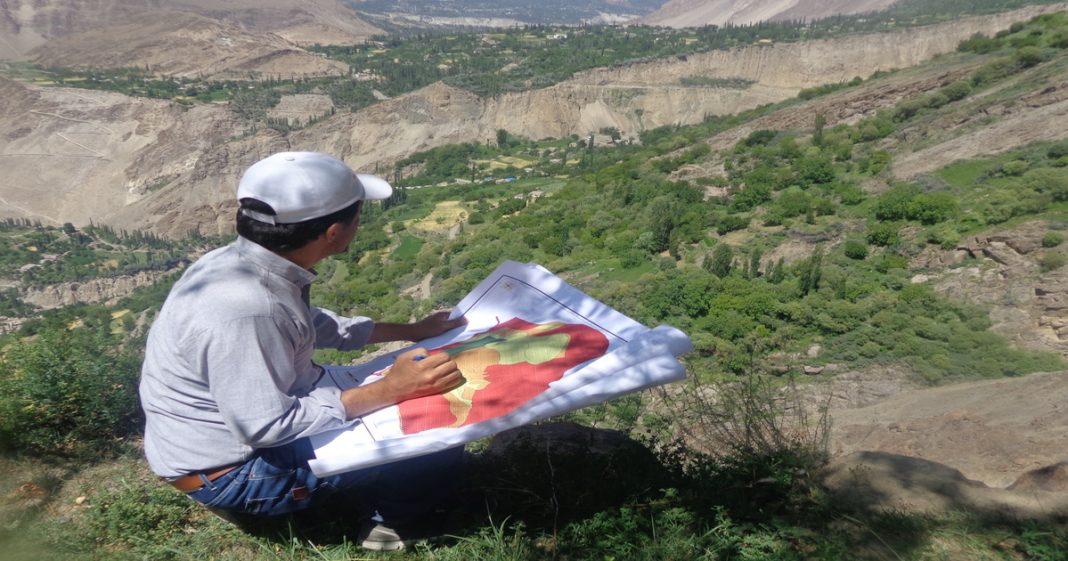Pakistani project, AKAH, has won an international gold award at the World Habitat Awards that are organized by the United Nations Housing Agency (UN-Habitat).
Aga Khan Agency for Habitat, Pakistan has trained 50,000 people to better protect their villages from disasters in the mountainous northern areas that are vulnerable to earthquakes, floods, torrential rains, and environmental degradation.
'Pakistan project wins award for shielding villages from natural disasters' https://t.co/QLCTPmIvjO Great piece on one of our 2020 #WorldHabitatAwards Gold winners @AKAHPakistan @TRF_Stories @rinachandran
— World Habitat (@WorldHabitat) December 3, 2020
“It’s not just responding to the effects of the climate emergency, but being proactive in protecting people from its effects, using technology and the knowledge of communities,” asserted David Ireland, the chief executive of the charity organization, World Habitat.
“It provides communities with the knowledge of where and how to live in safety in a changing world. The potential for this approach to be adapted and used in similar areas in Pakistan and elsewhere is huge,” he said in a statement.
Read more: Climate Change: Causes, Outcomes in Pakistan And a Way Forward
According to the report of the World Bank, nearly 2m have been killed in Pakistan due to natural disasters since 1980. Moreover, the climate change in Pakistan is expected to push additional 100m into extreme poverty in the coming decade.
Well done to @akdn and @AKRSPGBC for the great work you do I helping to build resilient communities. @CanHCPakistan is proud to work in partnership with you and the people of #Pakistan! https://t.co/LADjrmTTBR
— Wendy Gilmour (@gilmour_wendy) December 3, 2020
AKAH: Pakistani project receives accolade
The AKAH Project was launched in 2006. The project encompasses mapping and monitoring hazards using satellite images and drones and creating disaster risk management plans with the participation of the local community.
The training enables the residents to better prepare them for and respond to the disasters, said AKAH.
The Aga Khan Agency for Habitat, #Pakistan (#AKAH) is honoured to win the #WorldHabitatAwards 2020 Gold Award for its work helping communities manage disaster risk & plan for a better future, using hazard vulnerability and risk assessments.
Learn more: https://t.co/YT6BAzOvnb pic.twitter.com/KDFovhKp83— Aga Khan Development Network (@akdn) December 3, 2020
The organization further read that by combining local knowledge, community participation, and technology, the project develops “resilient, sustainable communities capable of living in dignity” amid the increasing threats from climate change.
Pakistan and climate change
Pakistan has faced catastrophic floods, droughts, and cyclones in recent years that have killed and displaced thousands, destroyed livelihoods, and damaged infrastructure. Climate change raises the prospect that these and other natural hazards will increase in frequency and severity in the coming decades—a stark reminder that Pakistan is one of the countries most vulnerable to the effects of climate change.
However, it takes something a lot more confrontational to remind our country something’s wrong. What has caught everyone’s attention is the recent plague of smog across major cities in Pakistan.
An initiative launched by the Pakistan Parliament’s Upper House, the Senate, established a sub-Committee of the Standing Committee on Climate Change and declared the “Right to a clean, green and healthy environment” as a Fundamental Human Right. However, the government has not invested in the fight against climate change.
GVS News Desk














